David Randall is Director of Research at the National Association of Scholars.
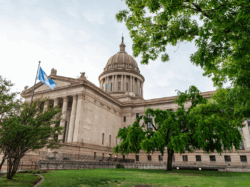
Editor’s Note: The following is an article originally published on the Oklahoma Council of Public Affairs on September 29, 2025. With edits to match Minding the Campus’s style guidelines, it is crossposted here with permission. Oklahoma’s new social studies and science standards make it possible for students to have much-improved instruction in Oklahoma’s public K-12 classrooms. It […]
Read More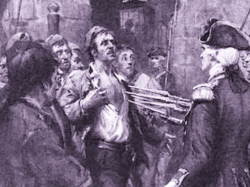
On September 25, 1775, Ethan Allen was captured by the British outside Montreal, at the Battle of Longue-Pointe. He would spend several years held captive by the British—and, once released, write up his exploits to popular acclaim in A Narrative of Ethan Allen’s Captivity (1779). Some later historians, revisiting the battle, would conclude: Damfool blowhard […]
Read More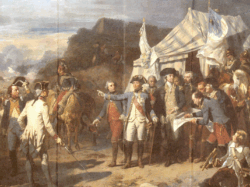
On September 1, 1775, George III refused to accept the Olive Branch Petition, Congress’s last attempt to avoid war. When John Adams heard the word back in America, he must have breathed a sigh of relief. On July 5, 1775, almost a year to the day before our Declaration of Independence, the Second Continental Congress had signed […]
Read More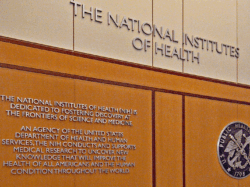
Editor’s Note: The following is an article originally published on RealClear Science on August 19, 2025. With edits to match Minding the Campus’s style guidelines, it is crossposted here with permission. The irreproducibility crisis of modern science—the failure of large proportions of scientific research to produce true results—just keeps on going. In November, a survey of 1,924 biomedical […]
Read More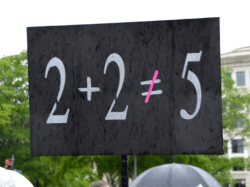
There’s an entire TikTok category of videos, Why is Common Core Math Bad. If you go to Instagram, there’s a math teacher who’ll tell you, If you’ve ever tried to read the Common Core’s Standards for Mathematical Practices, they’re almost impossible for math teachers to understand … and that means that students, parents, and administrators […]
Read More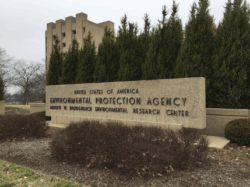
Daren Bakst and Marlo Lewis have edited a series of science policy recommendations for reforming the Environmental Protection Agency (EPA) that literally put the irreproducibility crisis of modern science first. In the first chapter of Modernizing the EPA, Marlo Lewis argues that the EPA’s policy mistakes derive from permitting and fostering practices associated with the […]
Read More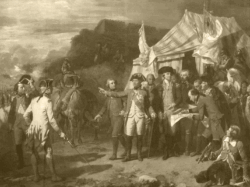
George Washington took command of the Continental Army outside Boston on July 3, 1775. He immediately spent a solid week inspecting the army, and only then wrote to the Continental Congress with his first report. The Continental Army was brave, but it could be made better. Above all, Washington needed money. I find myself already […]
Read More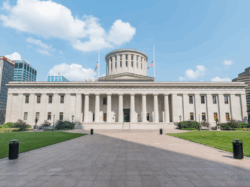
Ohio SB 1, which will do an extraordinary amount to depoliticize Ohio’s public higher education system, strengthen intellectual diversity, and restore its accountability to Ohio policymakers and citizens, well and truly will become law. Governor Mike DeWine signed SB 1 into law at the end of March. Since then, Ohio professors organized a petition campaign […]
Read More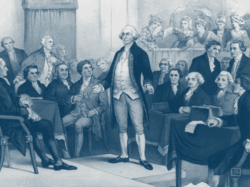
The Continental Congress appointed George Washington Commander-in-Chief of the Continental Army on June 19, 1775. Washington did not think he was qualified for the job. It’s not like any other part of the Patriot resistance was ready for war. Washington was off to lead a bunch of Massachusetts farmers who trained part-time. There were a […]
Read More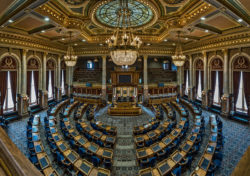
The Trump administration just issued an Executive Order to prohibit accrediting organizations from imposing “diversity, equity, and inclusion” (DEI) policies on universities. The Secretary of Education shall, as appropriate and consistent with applicable law, hold accountable, including through denial, monitoring, suspension, or termination of accreditation recognition, accreditors who fail to meet the applicable recognition criteria […]
Read More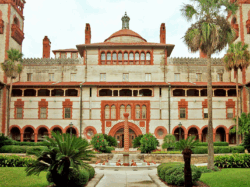
Classical education is growing rapidly in America—and with good reason. Set aside for the moment whether classical education provides a better character education than mainstream K-12 education. It does a good job simply in conveying basic knowledge and preparing students for college and careers. [R]esearch shows CCE graduates possess uniquely valuable skills for modern employers. […]
Read More
“In 2024,” says a new report from Americans for Public Trust, “China poured over $175 billion into U.S. schools, and the historic breadth of this vast enterprise cannot be understated.” Americans for Public Trust’s report also reveals that, Additional government investigations have also revealed a dramatic increase in instances of U.S-based researchers being arrested for […]
Read More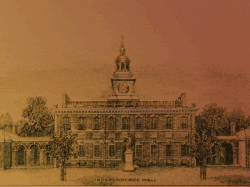
The Second Continental Congress opened on May 10, 1775. The British had already fired upon Massachusetts militia men at Lexington and Concord. Soon, Congress would make itself into a genuine, revolutionary government by taking on the traditional tasks of borrowing money, printing paper currency, and raising an army, which is what they needed the money […]
Read More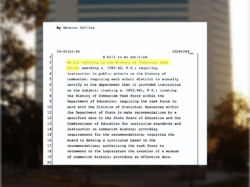
I’ve recently had the honor and the pleasure to serve on the Workgroup assembled by the Florida Department of Education (FLDOE) to help draft Florida’s new K-12 History of Communism standards. I shouldn’t say anything about the draft standards in detail, since they haven’t yet been published, but my fellow workgroup members and the members […]
Read More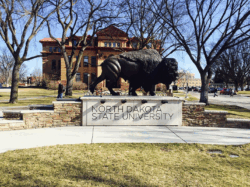
Editor’s Note: This article was updated to reflect the current name of the University of Maryland Global Campus, replacing its former name, University of Maryland, University College. An extraordinary number of public state universities now admit a majority of their students from out of state. At the University of Vermont, the number is 75 percent. […]
Read More
The University of Oklahoma offers a Social Justice Minor, which “introduce[s] students to the complexities of structural inequalities and injustices while teaching students critical thought processes.” Arizona State University offers an MA in Social Justice and Human Rights that prepares students to understand “how social justice and human rights issues are defined by multiple and […]
Read More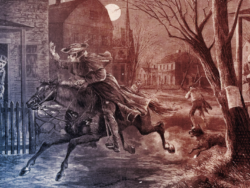
Of course, Paul Revere was a hero as he rowed and rode to alarm the countryside around Boston: “The British are coming! The British are coming!” (“The Regulars are coming out,” the staid historians tell us were his actual words.) So too were the much neglected William Dawes and Samuel Prescott. We owe our independence and our liberty to their pluck and bravery. […]
Read More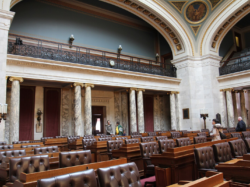
In 2023, the American Anthropological Association (AAA) canceled an accepted session from their annual conference: “Let’s Talk About Sex, Baby: Why biological sex remains a necessary analytic category in anthropology.” AAA’s decision, phrased in today’s academic jargon, was explicitly political. AAA President Ramona Pérez, writing jointly with President Monica Heller of the Canadian Anthropological Society, […]
Read More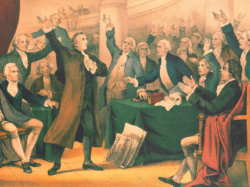
On March 23, 1775, Patrick Henry gave his “Give me liberty or give me death” speech at the Second Virginia Convention, in favor of a resolution that Virginia form a militia to oppose King George’s tyranny. Moderates at the convention were somewhat reluctant to go on record saying explicitly that George was a tyrant who must […]
Read More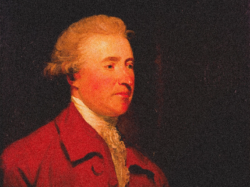
On March 22, 1775, Edmund Burke delivered one of his great Parliamentary orations on Conciliation with America. Britain and America were rushing to war, and Burke pulled out the stops to make an extraordinary peroration for peace. Britain’s current policy was worse than unjust—it was doomed to fail. Peace must be achieved, argued Burke, by […]
Read More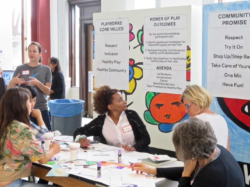
The James G. Martin Center for Academic Renewal has just released Blueprint for Reform: Teacher Preparation, a thoughtful overview of the state of teacher preparation, with succinct, useful recommendations for policymakers who wish to improve education policy so as to get better-prepared teachers into the classroom. It’s very much worth reading—and I’d say so even […]
Read More
A friend of mine is a professor on the front lines of the artificial intelligence (AI) cheating revolution, both in his classroom and as part of the college committee that judges academic misconduct. He’s discovered that a collective approach to detecting AI cheating may be more effective than an individual one. But adopting a collective […]
Read More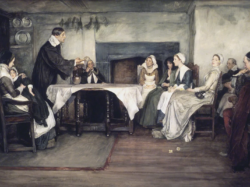
I’ve written earlier about the recent William & Mary Quarterly Forum, whose contributors proposed getting rid of the term “early America”—not least out of a desire to stop teaching American history. Everything I wrote then is true enough, but it was written in a more polemical mode. I want to return to the subject to […]
Read More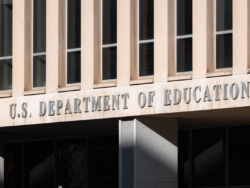
Newly confirmed Secretary of Education Linda McMahon has just sent an initial email to the staff at the Education Department (ED): Our job is to respect the will of the American people and the President they elected, who has tasked us with accomplishing the elimination of bureaucratic bloat here at the Department of Education—a momentous […]
Read More
On February 9, 1775, the Parliament of Great Britain declared Massachusetts in a state of rebellion. With cause: Massachusetts’ Provincial Congress had met without royal leave and was organizing and training a military force. Massachusetts’ disobedience could no longer be ignored. Now, Britain would arm itself for war. Orders sailed to Governor Thomas Gage in […]
Read More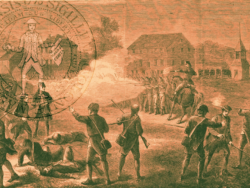
America survived those crucial months because we had self-government as well as liberty. The Second Massachusetts Provincial Congress assembled on February 1, 1775. The Second Congress would select Samuel Adams, John Adams, John Hancock, Thomas Cushing, and Robert Treat Paine to serve as delegates to the Continental Congress. It authorized a Committee of Safety—among other […]
Read More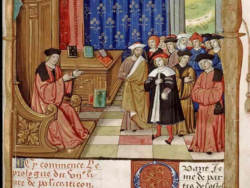
Editor’s Note: The following piece builds on the reflections of civilizational decline outlined in Peter Wood’s “Death Wish,” in which he argues that Western civilization is in decline, primarily due to internal cultural decay. Various signs of this decay include moral confusion, widespread violence, lawlessness, and the erosion of traditional values. According to Wood, the […]
Read More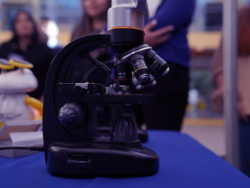
Editor’s Note: This article was originally published by RealClear Education on January 27, 2025. With edits to match Minding the Campus’s style guidelines, it is crossposted here with permission. America needs new science standards. That’s why the National Association of Scholars and Freedom in Education published The Franklin Standards: Model K-12 State Science Standards. These standards are […]
Read More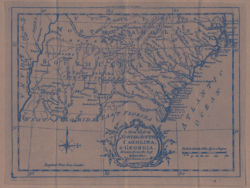
Francis Salvador, who emigrated from England to South Carolina in 1773, was the first Jew to be elected to a South Carolina legislative assembly—in 1774 and 1775, his neighbors voted him into South Carolina’s First and Second Provincial Congresses, with happy disregard for the statutes that gave Jews no right to vote or hold office. […]
Read More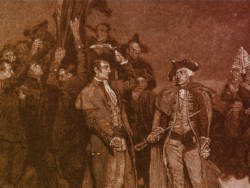
In New Hampshire, they call it “the shot not heard round the world.” On December 14, 1774, local patriots captured Fort McHenry in Portsmouth harbor. It’s probably—definitions and claims vary—the first open act of violent rebellion during the American Revolution. Patriots had been increasingly worried about control of scarce guns and powder since October when […]
Read More